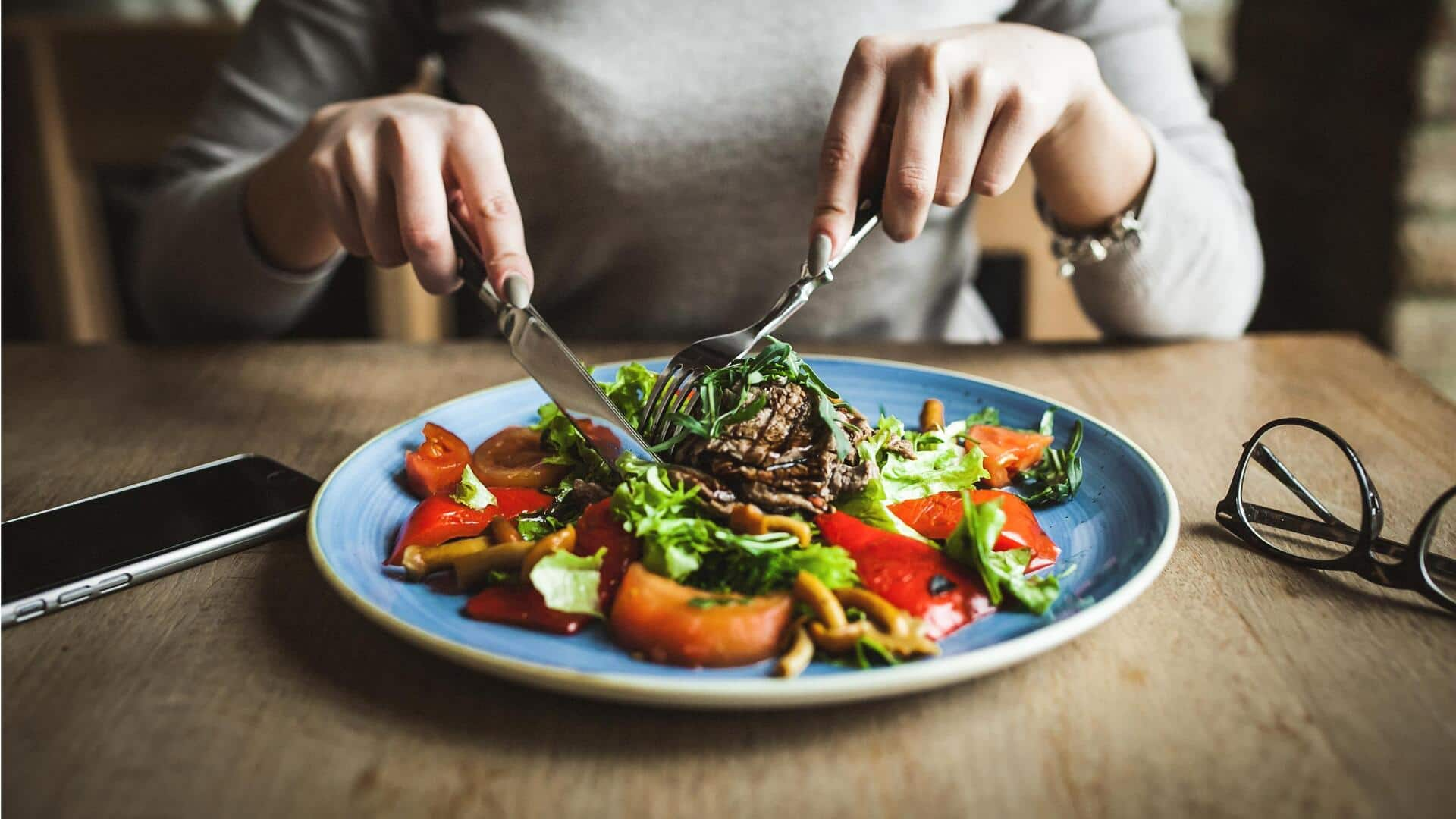
Portion control: Tips for eating right and prevent overeating
What's the story
If you are aiming to reach your fitness goals without the frustration of gaining unwanted weight, mastering portion control is one thing you need to focus on, alongside exercise and other healthy weight loss methods. Portion sizes refer to how much food you're served in one meal. Larger portions can lead to eating more calories, as people tend to finish what's on their plate.
Restriction
Understand that restricted eating backfires
When tempted by a delicious dish like paneer tikka, opt for a smaller portion instead of skipping it entirely. If you are not satisfied after the small portion, wait for an hour. If you are still craving more, have another small portion. Remember, overly restricting eating can be counterproductive. The key is to satisfy your taste buds in moderation.
Plate size
Use a smaller plate
The size of your plate can influence your perception of how much food looks satisfying. A normal portion on a big plate can seem small, making you feel unsatisfied even if you ate enough. To avoid this, use a smaller plate. This can make your portion look bigger and help prevent you from adding too much on your plate and overeating.
Measure
Use measuring cups
Struggling to figure out how much to eat? Try measuring cups. These cups provide a standardized way of measuring your food portions, taking the guesswork out of the equation. You don't need special ones—any teacup, mug, or container that is handy will do. Each time you serve yourself a meal, you can use these cups to ensure that your portion sizes are consistent.
Slow eating
Eat slowly
Cut your food into smaller pieces and enjoy each bite slowly. Chew thoroughly, paying attention to the texture and flavor. This method works with your body's natural signals for portion control. It takes about 20 minutes for your stomach to tell your brain you are full. When you eat slowly, you are more likely to notice when you are getting full before overeating.
Leftovers
Avoid eating leftovers
While preventing food waste is important, you don't have to eat every last bit. It is worth considering whether you are genuinely hungry or just drawn to the idea of not wasting food. Consider preparing smaller portions or incorporating leftovers into upcoming meals. This approach not only encourages thoughtful eating but also aligns with a sustainable approach to managing food resources.